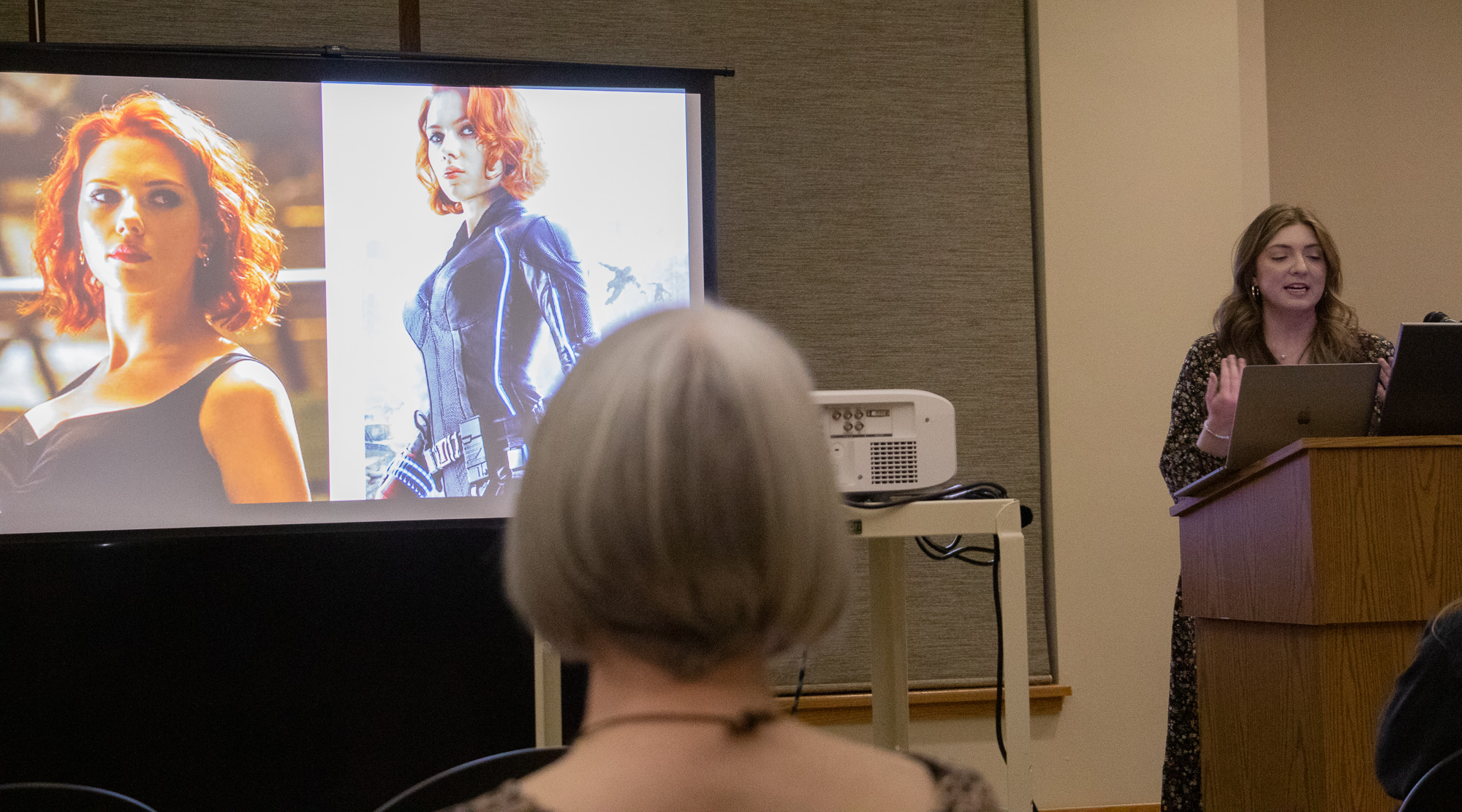Lambert shares critique of women in Marvel films

CHADRON – In the first Graves Lecture of the spring semester, Chadron State College Communication Lecturer Katelyn Lambert shared a feminist critique of more than 20 Marvel Cinematic Universe (MCU) films she conducted for her award-winning graduate thesis at the University of Nebraska Omaha.
In her presentation, Women in the Marvel Cinematic Universe, from Iron Man to Black Widow, Lambert gave examples of how women characters have been sexualized and objectified in the MCU, a media franchise consisting of various films and television and streaming series based on comics from the 20th Century. The main characters include Captain America, Iron Man, Hulk, Thor, Black Panther, and Doctor Strange.
“I use feminist film theory as the cornerstone to ground my observations. In essence, feminist film theory observes and analyzes women's on-screen portrayal, trying to gain an understanding of their role within a film. Are they protagonists, or do they exist just to bolster male counterparts? Are they a love interest or do they actually serve a purpose beyond just being the girlfriend or damsel in distress,” she said.
As of 2021, the MCU was estimated to be worth nearly $53 billion, according to Lambert. Movies starring women such as She Hulk, Miss Marvel and Hawkeye were not opted to be blockbuster films in theaters.
“Instead, they were put on streaming services and I imagine it's because of the belief that there would not be the same amount of financial gain by putting them on the big screen,” Lambert said.
She shared research that proves poor representation of women in film leads to lower self-esteem among women who consume that media.
“Female college students, when surveyed, tend to identify and dislike the hyper sexualization of female characters. These portrayals can promote the objectification of women being societally normalized,” Lambert said.
She used four phases to show the shift in how MCU’s women characters were constructed and portrayed from 2008 to 2021.
“The resounding conclusion I came to is that the work has indicated a shift toward more authentic representation of women. But there is still a significant amount of work remaining, especially regarding characters who don't fall into the confines of being white, cisgender, and or heterosexual,” she said. “My goal is for you to gain a better understanding of the nuanced and subliminal forms of sexism found in the MCU.”
She hopes her research will provide some foundational research that others can reference in future critiques and help lead to positive change toward more authentic representation of women in film.
Category: Campus News, English, Graves Lecture Series
